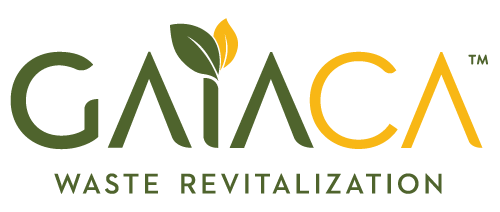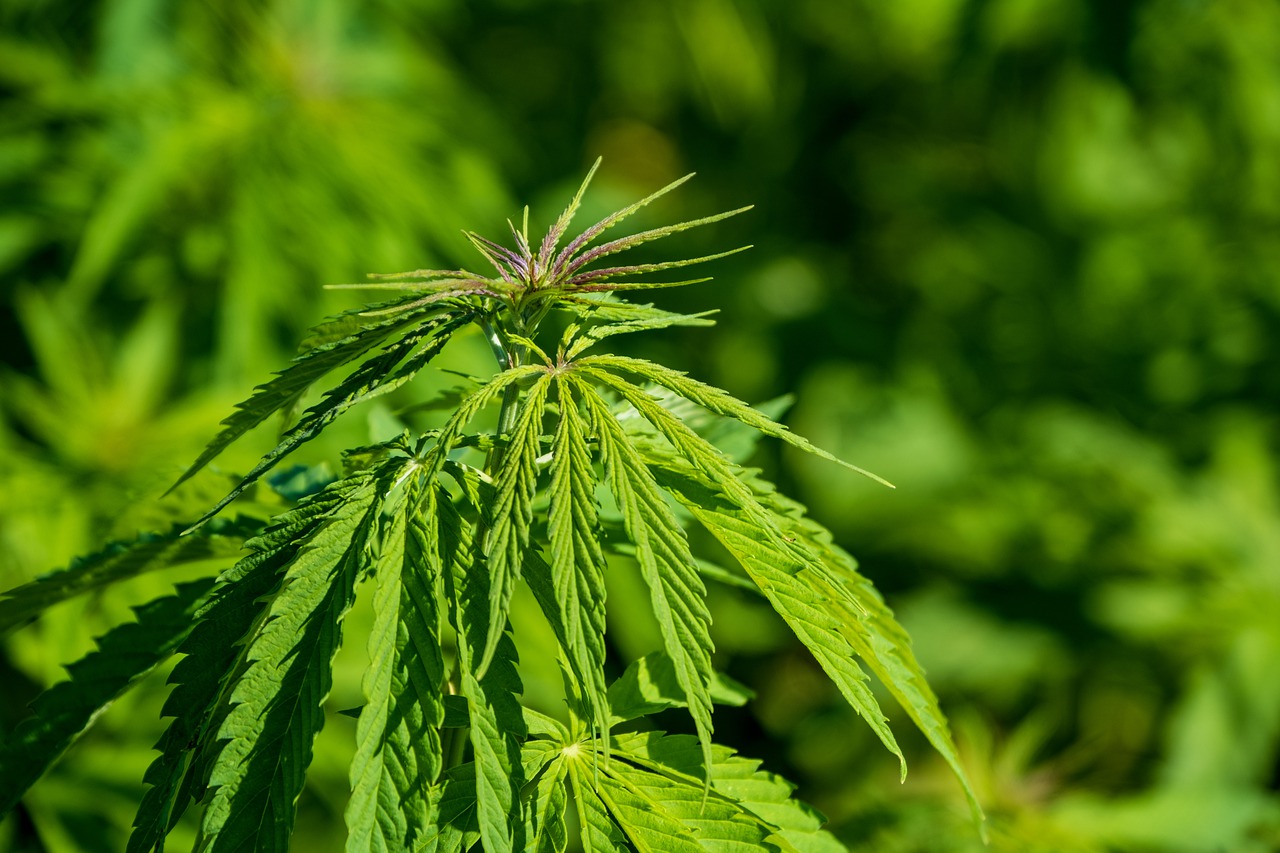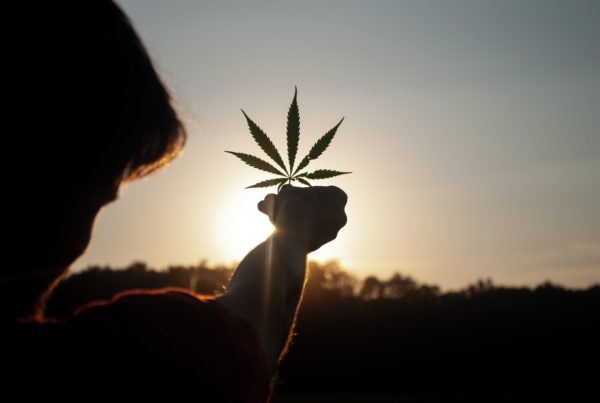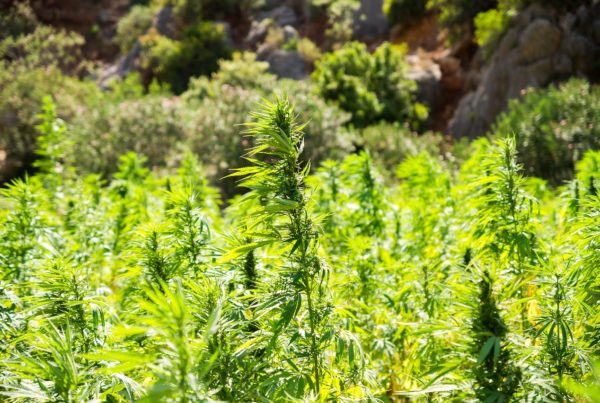Hemp is becoming extremely popular in light of its loosened agricultural restrictions in the U.S., but there are still quite a few hemp myths out there. For instance, some people believe that hemp is a form of marijuana. Some believe that all CBD products are hemp-derived. Whether you’re curious about the legality of hemp cultivation, the medicinal uses of the plant, or what distinguishes it from CBD, we’re here to dispel the various hemp myths and rumors.
1. Myth: Hemp and Marijuana Come From the Same Plant
This is a major source of confusion. Hemp and marijuana come from the same species of plant (Cannabis sativa), but they’re very different cultivars. When cannabis contains significant amounts of THC and is psychoactive, it’s characterized as marijuana. If the plant has only trace amounts of THC and is non-psychoactive, it’s classified as hemp: same species, different plant.
By law, a cannabis plant is considered industrial hemp if it contains .3% THC or less. Hemp plants have been selectively bred for centuries for their medicinal properties and for their potential in producing durable fibers, textiles, foods, insulation, and other materials. In modern times, hemp is even used as an eco-friendly form of biofuel. Marijuana plants, on the other hand, are still bred primarily for their psychoactive potential.
2. Myth: Hemp Can Get You High
This is closely linked to the previous hemp myth, but it warrants its own explanation since it remains such a persistent talking point. The psychoactive compound in cannabis is tetrahydrocannabinol (THC). Marijuana plants average 10-20% THC, sometimes more. Hemp, on the other hand, can contain no more than .3% THC by law. It’s not enough to elicit even the slightest buzz.
It’s true that some people smoke hemp flower in the same way that you can smoke marijuana flower. But the purpose is most often to consume the CBD and other compounds, not to get high.
3. Myth: CBD Products Come From Hemp
This is actually a partial-myth. While most commercially available CBD oils are derived from hemp, it’s dangerous to assume that you’re getting a hemp-based formula just because it’s advertised as a CBD product.
Cannabidiol (CBD) is present in both hemp and marijuana. In order to be sold in the general marketplace (i.e. in the drug store as opposed to the dispensary), CBD products must be hemp-derived. So if you’re shopping at a neighborhood pharmacy or CBD store and not asked to show your ID, you’re probably safe.
However, you have to be careful when shopping for cannabidiol products online or in dispensaries. Some of these products are marijuana-derived and may be psychoactive. If you’re not looking for that type of experience, or if you’re concerned about failing a drug test due to an honest mistake, always check to ensure that your CBD product has .3% THC or less.
4. Myth: Cultivators Hide Marijuana Crops in Hemp Fields
This is one of the prominent anti-hemp arguments. It basically asserts that, because marijuana and hemp are visually indistinguishable to the casual observer, some illicit growers are concealing their marijuana plants amid vast fields of hemp—thus avoiding detection from the authorities.
Not only is this not a persistent issue, but it’s not even practical. Marijuana and hemp don’t mix; cross-pollination reduces the THC concentration in the marijuana, potentially ruining the crop. In addition, a trained agricultural inspector can easily spot the difference between marijuana and hemp plants. Hemp is typically bunched together while marijuana plants require several feet of space between them. In addition, hemp grows taller and leaner than marijuana.
5. Myth: Hemp Seed Oil Is the Same as CBD Oil
While this falls under the category of hemp myths, it’s actually more of an honest misconception. When you search for CBD online, you’ll see a lot of results for hemp seed oil. This is especially common in marketplaces where CBD sales are prohibited, like Amazon. A casual buyer will often purchase the hemp seed oil assuming it to be CBD, but hemp seed oil has no cannabidiol whatsoever.
CBD is extracted from the flowers and leaves. Hemp seed oil is extracted from the seeds. The oil may offer some therapeutic value thanks to the high concentration of omega-3 fatty acids, but it is not CBD and should not be confused as such.
6. Myth: Hemp Products Have No Medicinal Value
Given the popularity of the CBD craze, many doctors have been adamant in insisting that CBD’s purported health benefits have not been proven. Some media outlets have then paraphrased these warnings with the more succinct “CBD Offers No Real Health Benefits.”
But there’s a big difference between “no health benefits” and “no proven health benefits.” CBD research is still in its infancy, and so researchers are rightfully hesitant to recommend cannabidiol for any specific health condition. However, numerous clinical CBD studies have shown promise for conditions like chronic pain, inflammation, muscle spasms, eczema, and more. In addition, the FDA has already approved one CBD-based drug, Epidiolex, for the treatment of seizures.
More research is still needed before CBD and hemp products can be touted as health remedies, but there is reason for cautious optimism.
7. Myth: Anyone Can Grow Hemp
In 2018, the United States Department of Agriculture (USDA) legalized and regulated the use of hemp as part of the Farm Bill. However, this does not mean that anybody can just order hemp seeds online and start cultivating at home. The emphasis is on the word regulated.
The law specifically allows states to enact hemp pilot programs and to oversee large-scale hemp production under the USDA’s own hemp program. States must submit plans for monitoring and regulating production, and those plans are subject to approval or rejection by the USDA. When a state’s plan is approved, all cultivators are subject to the terms and restrictions of that plan.
Hemp farmers must be licensed by either the USDA, the state, or a participating tribal authority. They must operate in a location where hemp is legal, and they must report their hemp crop acreage to the Farm Service Agency. All farms are subject to crop testing and inspection.
If you want to grow or manage within the confines of the law, you’ll need to apply for the appropriate licensure (usually a hemp grower, hemp seed producer, or hemp handler license). You’ll need to establish plans for how you plan to grow, monitor, and process your hemp. You’ll also need to contract with a knowledgeable hemp waste disposal provider that can help you dispose of your waste accumulation in accordance with the law.
The Smoke Is Clearing, But Hemp Myths Remain
Although hemp has been cultivated for centuries (both legally and illicitly), legal hemp is still a new frontier in the modern U.S. market. With that in mind, it’s understandable that there’s still a lot of confusion around this versatile crop. As the market expands and the products become more commonplace, we can expect a lot of these old hemp myths to disappear.
In the meantime, don’t fall for the common hemp myths. Always do your homework when confronted with a claim that seems questionable or hard to believe.






